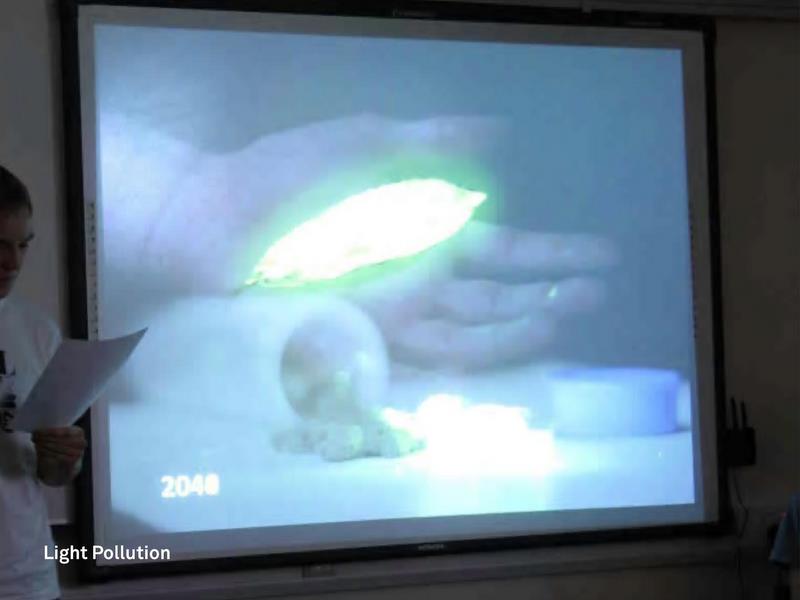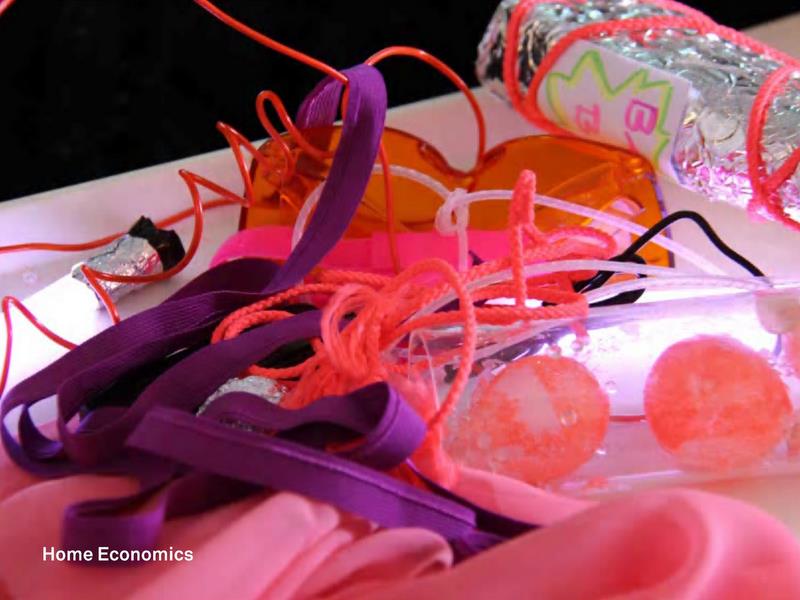Team:Cambridge/Human Practices
From 2010.igem.org
(→Knowledge Recycling) |
|||
| Line 33: | Line 33: | ||
{{:Team:Cambridge/Templates/RightImage|image=Recycle.png|caption=}} | {{:Team:Cambridge/Templates/RightImage|image=Recycle.png|caption=}} | ||
| - | We believe the need for openness and sharing of ideas to be of considerable importance to further knowledge, in the iGEM competition and beyond and the information society that we live in makes the sharing of ideas and finding relevant knowledge easier than ever before. The breadth and depth humanity’s current scientific understanding means that it is difficult for any single person to know enough about a particular area to make substantial advances on their own; collaboration is essential. It is not enough to only publicise and publish polished results at the end of a project. Work in progress should be made just as accessible to encourage this collaboration. Making available results from, and information about, experiments that failed is also important. It could prevent someone from wasting time trying exactly the same protocol again and may in fact be an important result in itself (that what was attempted be discovered simply cannot be discovered in that way). It is difficult to get research papers published for experiments that do not work, though journals such as the [http://www.jasnh.com/ Journal of Articles in Support of the Null Hypothesis] are changing this. Instead experiment attempts could be documented on wikis or blogs such that they are still available to someone searching the internet for them - this means all the hand work is not wasted, even if the desired results are not obtained. Protocols and techniques are particularly valuable when shared; reproducibility is a central concept to science and standardising protocols is necessary for this. Putting detailed protocols up on sites such as [http://openwetware.org/wiki/Main_Page open wetware] also helps encourage new researchers to get involved the particular field and prevents time and resources being wasted optimising procedures. | + | We believe the need for openness and sharing of ideas to be of considerable importance to further knowledge, in the iGEM competition and beyond and the information society that we live in makes the sharing of ideas and finding relevant knowledge easier than ever before. The breadth and depth humanity’s current scientific understanding means that it is difficult for any single person to know enough about a particular area to make substantial advances on their own; collaboration is essential. It is not enough to only publicise and publish polished results at the end of a project. Work in progress should be made just as accessible to encourage this collaboration. Making available results from, and information about, experiments that failed is also important. It could prevent someone from wasting time trying exactly the same protocol again and may in fact be an important result in itself (that what was attempted be discovered simply cannot be discovered in that way). |
| + | |||
| + | It is difficult to get research papers published for experiments that do not work, though journals such as the [http://www.jasnh.com/ Journal of Articles in Support of the Null Hypothesis] are changing this. Instead experiment attempts could be documented on wikis or blogs such that they are still available to someone searching the internet for them - this means all the hand work is not wasted, even if the desired results are not obtained. Protocols and techniques are particularly valuable when shared; reproducibility is a central concept to science and standardising protocols is necessary for this. Putting detailed protocols up on sites such as [http://openwetware.org/wiki/Main_Page open wetware] also helps encourage new researchers to get involved the particular field and prevents time and resources being wasted optimising procedures. | ||
After coming to these conclusions from our discussions we made sure we conducted our research in the light of these ideas. We got our Wiki up as early as possible with our aims and ideas and kept the online lab book updated with our ongoing research. We always endeavoured to be open and honest about exactly the protocols we were using and what results they gave. The [https://2010.igem.org/Team:UNAM-Genomics_Mexico UNAM Genomics, Mexico] team contacted us because of the information on our Wiki and we were able to collaborate with them and help them with part of their project. We were also able to have useful discussions with the [https://2010.igem.org/Team:Edinburgh Edinburgh] team based on information we read on each other’s Wikis. From our thoughts about sharing our findings we decided that we should put effort into publicising our science. Our project will be featured on a documentary to be broadcast on [http://www.arte.tv/fr/70.html ARTE] which will bring a better understanding of synthetic biology to the general public. We also wanted to get a message across to the scientific community; the [https://2010.igem.org/Team:Cambridge/Gibson/Introduction Gibson assembly] technique which we performed frequently is not as widely used as we believe it could be so we chose this to publicise and produced a [https://2010.igem.org/Team:Cambridge/Videos music video] to do so. The song has over 3000 views so far and researchers have contacted us for more information about our experience with the technique. | After coming to these conclusions from our discussions we made sure we conducted our research in the light of these ideas. We got our Wiki up as early as possible with our aims and ideas and kept the online lab book updated with our ongoing research. We always endeavoured to be open and honest about exactly the protocols we were using and what results they gave. The [https://2010.igem.org/Team:UNAM-Genomics_Mexico UNAM Genomics, Mexico] team contacted us because of the information on our Wiki and we were able to collaborate with them and help them with part of their project. We were also able to have useful discussions with the [https://2010.igem.org/Team:Edinburgh Edinburgh] team based on information we read on each other’s Wikis. From our thoughts about sharing our findings we decided that we should put effort into publicising our science. Our project will be featured on a documentary to be broadcast on [http://www.arte.tv/fr/70.html ARTE] which will bring a better understanding of synthetic biology to the general public. We also wanted to get a message across to the scientific community; the [https://2010.igem.org/Team:Cambridge/Gibson/Introduction Gibson assembly] technique which we performed frequently is not as widely used as we believe it could be so we chose this to publicise and produced a [https://2010.igem.org/Team:Cambridge/Videos music video] to do so. The song has over 3000 views so far and researchers have contacted us for more information about our experience with the technique. | ||
Revision as of 03:33, 28 October 2010

Human practises encompasses the social ethical and legal considerations of our work. We imagined how our particular project might impact on peoples lives as well as thinking about the wider issues of the way we practise our science and share our findings. To help publicise our conclusions we produced a short video summarising the arguments for openness in research.
Futures
We spent a day early in the project imagining how engineered artificial bioluminescence might be used in the future. This workshop, led by [http://www.daisyginsberg.com/ Daisy Ginsberg] from the Royal College of Arts, made us think about where research into bioluminescence might one day bring us. How would omnipresent bioluminescence affect the way we perceive light in our living environment? Will engineered bioluminescence find its way into consumer products or remain in highly specialised applications and novelty items? Bioluminescent light has a broad spectrum and is emitted volumetrically. How can we use these different qualities of light compared to conventional sources for art, design and architecture?
We split the team into three groups, each of which went on to explore their own ideas about the future of bioluminescence:
The first group considered the impact of bacterial lighting at home. If ‘E.colights’ became available for household use how would they be received? What issues would have to be addressed for this to happen? We also considered the markets for other domestic products that might arise as a result and made a mock advert for ‘Bactobang’, an improved antibacterial agent to prevent the escape of bioluminescent synthetic organisms should their container become damaged. We also thought about the possibility of bioluminescence in art and fashion and presented our ideas to the rest of the team.
The second group envisaged ‘Bright Foods’ where the plants and animals that we eat might be engineered to have different colours of bioluminescence that would give an easily interpretable indication of nutritional content. The brightness of the luminescence would fade over time giving an indication of the freshness of the foodstuffs. This could also add an additional dimension to the experience of eating – perhaps restaurants would serve food in the dark so customers could fully appreciate the aesthetics of their luminescent meal. Food standards agencies might even insist that all food conforms to bioluminescent regulations such that foods with high levels of salt or saturated fat glowed particular colours to indicate this to customers. Perceptions might change such that people come to expect their food to glow and view dark food as spoiled and unappetizing. Bioluminescent cocktails could also become a fashionable drink in upmarket bars.
The third group considered how bioluminescence might slowly replace conventional lighting and the issues with intellectual property that this might cause. Initially, artificial bioluminescence could be a novelty – perhaps bioluminescent fish would be a popular pet. As our knowledge of synthetic biology grows, luminescent trees could become a real possibility; the commercial potential in replacing the street lights of the world could lead to strong competition with patents for bioluminescent systems. It could then be difficult to control and police the use of patented genetic systems; if the parts were put into fertile organisms then people might start illegally breeding their own light sources. We also considered containment issues and people’s attitudes towards them. As organisms engineered to be bioluminescent would not pose any considerable threat to public health or the environment, their escape might not be considered a serious issue. The amazement and awe inspired by natural bioluminescence might even lead to the escape of bioluminescent genes being welcomed by the public of the future – particularly one that had grown accustomed to this form of lighting in their homes and cities.
Applications
Our thoughts on using biological light sources led us to consider the concept of sustainability. Would our lighting be more sustainable and environmentally friendly than conventional devices? and where might it be useful? Bioluminescence is 'cold light' and much more efficient than conventional lighting. Despite this we find it unlikely that bioluminescence would completely replace current lighting and instead considered it's applications in remote off grid areas or complementing existing sources. Our biological systems would require only a chemical fuel source so would not be dependant on the electrical grid. Perhaps this fuel could come from waste products be that human waste or food waste. If a photosynthetic organism such as a suitable alga species was used then additional energy could be harnessed from sunlight. We might imagine a system where a bioreactor in the roof of a house - supplied with leftover foodstuffs - could pipe glowing algae through the rooms of the house during the night and across the roof during the day. We also considered the exciting prospect of bioluminescent trees lighting our roads and produced a 3D model of what this might look like as well as researching the feasibility of such a project.
We also considered the prospect of using our light production in biosensors after a talk from [http://practicalaction.org/blog/author/djg/ David Grimshaw] of Practical Action. Dr. Grimshaw has worked with the issues of contamination of water sources with arsenic in Bangladesh and mercury in Nepal. He informed us that local people wished for a portable device that was easy to use such that testing of wells could be performed by members of the community and a quantitative digital readout would be preferable. Light production as an output of a biological circuit could be detected by a sensor in an electrical system to give a digital readout. Our biobricks could bridge the gap between biological and electrical circuits. Further investigation into the practicalities of this led to the development of the E.glometer
Knowledge Recycling
"He who receives an idea from me receives it without lessening me, as he who lights his candle at mine receives light without darkening me." – Thomas Jefferson
Sustainability considerations in designing our system also led us to consider the sustainability of the way we conduct our research. The theme of recycling echoed strongly throughout or project due to the desire to recycle luciferin substrate in project firefly and more generally with considerations of minimising the environmental impact of our work. Recycling of physical materials is vital for sustainability but do we treat our intellectual property in the same way? Do we give the ideas we have the maximum chance of being taken forward and used to promote further thought rather than reaching intellectual dead ends? And what can we do to maximise knowledge recycling?
We believe the need for openness and sharing of ideas to be of considerable importance to further knowledge, in the iGEM competition and beyond and the information society that we live in makes the sharing of ideas and finding relevant knowledge easier than ever before. The breadth and depth humanity’s current scientific understanding means that it is difficult for any single person to know enough about a particular area to make substantial advances on their own; collaboration is essential. It is not enough to only publicise and publish polished results at the end of a project. Work in progress should be made just as accessible to encourage this collaboration. Making available results from, and information about, experiments that failed is also important. It could prevent someone from wasting time trying exactly the same protocol again and may in fact be an important result in itself (that what was attempted be discovered simply cannot be discovered in that way).
It is difficult to get research papers published for experiments that do not work, though journals such as the [http://www.jasnh.com/ Journal of Articles in Support of the Null Hypothesis] are changing this. Instead experiment attempts could be documented on wikis or blogs such that they are still available to someone searching the internet for them - this means all the hand work is not wasted, even if the desired results are not obtained. Protocols and techniques are particularly valuable when shared; reproducibility is a central concept to science and standardising protocols is necessary for this. Putting detailed protocols up on sites such as [http://openwetware.org/wiki/Main_Page open wetware] also helps encourage new researchers to get involved the particular field and prevents time and resources being wasted optimising procedures.
After coming to these conclusions from our discussions we made sure we conducted our research in the light of these ideas. We got our Wiki up as early as possible with our aims and ideas and kept the online lab book updated with our ongoing research. We always endeavoured to be open and honest about exactly the protocols we were using and what results they gave. The UNAM Genomics, Mexico team contacted us because of the information on our Wiki and we were able to collaborate with them and help them with part of their project. We were also able to have useful discussions with the Edinburgh team based on information we read on each other’s Wikis. From our thoughts about sharing our findings we decided that we should put effort into publicising our science. Our project will be featured on a documentary to be broadcast on [http://www.arte.tv/fr/70.html ARTE] which will bring a better understanding of synthetic biology to the general public. We also wanted to get a message across to the scientific community; the Gibson assembly technique which we performed frequently is not as widely used as we believe it could be so we chose this to publicise and produced a music video to do so. The song has over 3000 views so far and researchers have contacted us for more information about our experience with the technique.
Many iGEM teams were similarly open with their ideas and results and this helped to foster the culture of collaboration that we believe is important to iGEM. We were however disappointed to see that some teams were less open. Three weeks before the wiki freeze 58 of the 127 teams participating had little more than an abstract on their wiki. This meant we were unable to engage in potentially valuable dialogue because we had little idea about what they were researching. To help encourage future teams and scientists generally to be more open with their work we produced a short video summarising our arguments. Previous iGEM teams have made interesting contributions to the field of human practises which perhaps have not had the desired effect on the way people conduct their science because not enough other scientists have seen them. We hope a short and more light-hearted summary might reach more people and help translate our conclusions into future action.
 "
"



